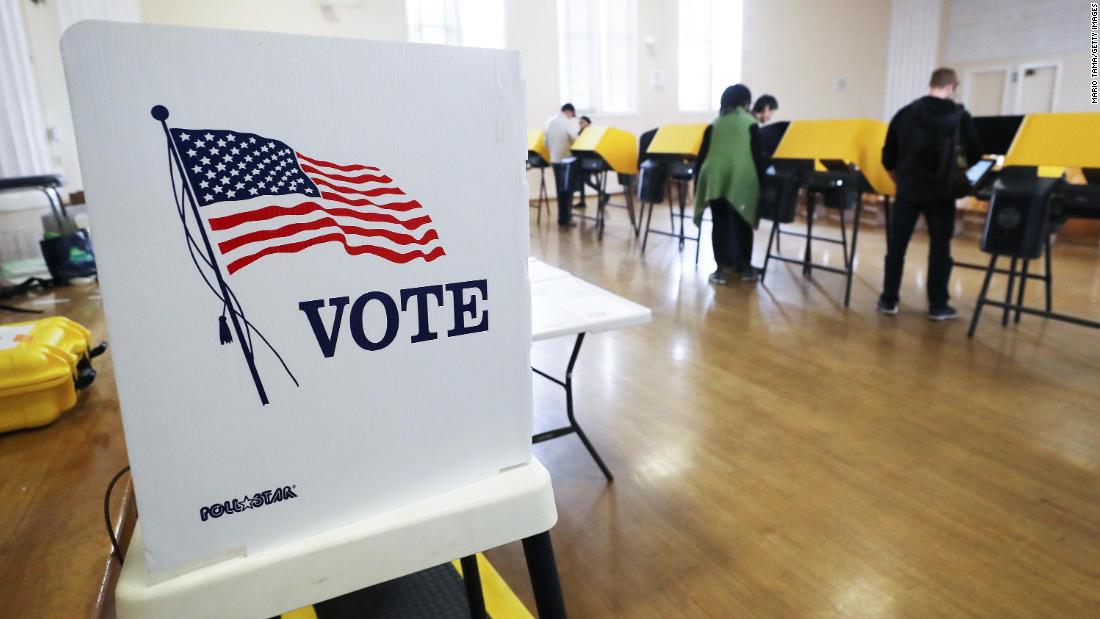 |
| US Elections |
On Tuesday, the so-called midterm elections will be held in the United States, the first polling stations opened at 10 am GMT, and the rest at 11 am, and these elections will determine who will control the US Congress over the next two years.
Americans re-elect the entire House of Representatives, which is one-third of the members of the Senate, legislatures, and governors in many states.
Both are currently under the control of Democrats headed by President Joe Biden, and Republicans are expected to take over the House.
The outcome of this election will inevitably have a powerful impact on the next two years of Joe Biden's presidency and his policies, including countering Russian aggression in Ukraine.
All 435 members of the House of Representatives are re-elected every two years.
Over the past two years, Democrats have had a majority in the House of Representatives. This is typical: when a new president is elected, his party often controls both the House and the Senate.
However, the Democrats' chances of retaining their influence in Congress are slim - and the party of the incumbent usually loses the midterm elections.
The only exception was in 2002, a year after the September 11 attacks, when Bush Jr.'s popularity was extremely high.
US Elections: Who Votes, Who Wins, and What Will Affect
In addition, a structural feature. According to the Constitution, each electoral district must have approximately an equal number of electors, but at the same time, each state must have at least one (in sparsely populated states, this is true - for example, Alaska is represented by a member only one Congress).
Everything else is up to the discretion of the states, and in many of them this means that constituencies are truncated by those with a majority in the state legislature (sometimes with a veto from the governor).
This practice (it has a special name - gerrymandering) leads to the fact that in most circles one of the parties has an absolute chance.
According to Cook's political report, Democrats are guaranteed to win in 159 districts and Republicans in 188. In 29 other districts, the probability of Democrats winning is assessed as high.
To get a majority, Democrats need to win another 30 districts, while the "unresolved" districts, where the outcome is unexpected, are only 35, and 10 of them, according to polls, are skewed toward Republicans.
One can speak with less certainty about the outcome of the struggle for the Senate, where 35 Senators are being re-elected. The 538 pollster now predicts that control of the House is as likely to remain with Democrats as it is with Republicans.
Losing either chamber will make the next two houses very difficult for Biden, as Republicans will try to block legislation, and they will be able to pass their own legislation - for example, an abortion ban.
Also, if the Republicans win a majority in Congress, it could lead to a serious change in US policy toward the war in Ukraine.
Read also: USA CRICKET ANNOUNCES NEW TRIALS CRICKET WORLD CUP
What can Ukraine expect if Republicans win a majority in the US Congress?
On November 4, Georgia Congresswoman Marjorie Taylor Green, a Republican, Trumpist and legal advocate, announced that Ukraine would not get a “penny” from the Republican Congress.
Her views in the GOP are by no means marginal: In October, the (yet) House minority leader and potential future speaker, Kevin McCarthy, said there would be no more "no-amount checks" written by Congress.
Popular party figures such as Donald Trump or his sons or Fox News anchor Tucker Carlson are skeptical of Ukraine's support.
Former US President Donald Trump used his last pre-election rally to announce his intention to run for president in 2024.
Joe Biden has also said several times that he intends to run for a second term. Not everyone believed him. Many are embarrassed that in 2024, shortly after the elections, the politician will turn 82 years old.
If the outcome of this election does not work for Democrats, and if Biden's approval rating does not recover in the coming months, he will be under intense pressure within the party to make way for more promising candidates.


0 Comments